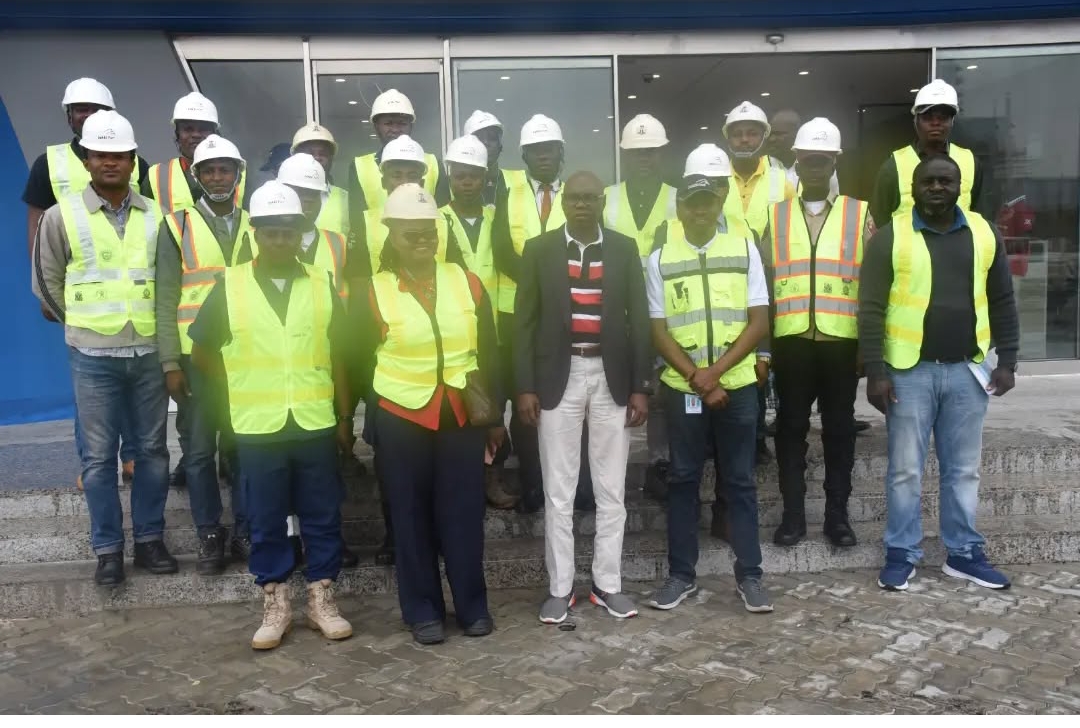
Investigations by Shipping Position Daily have revealed that after several months of inactivity, the Port Standing Task Team (PSTT) is set to resume operations as efforts by the Port Steering Committee intensify to restore its effectiveness.
The PSTT was created having the Nigerian Shippers’ Council (NSC) as the lead agency in collaboration the Independent Corrupt Practices and Other Related Offences Commission (ICPC), Department of State Services (DSS) and Nigerian Port Authority (NPA) which is responsible for the monitoring and enforcement of the Nigeria Port Process Manual (NPPM) as well as fostering efficiency and transparency in port operations.
Industry stakeholders have expressed concerns over the lull in PSTT’s activities, since the retirement of the former coordinator of the team, Mr Moses Fadipe. Despite past recorded successes of the team, some of these claims specifically noted that corrupt practices at the port have gone on the increase.

However, findings by Shipping Position Daily indicate that measures are being put in place to reinstate its role in ensuring efficiency and transparency at Nigeria’s ports.
The Executive Secretary of NSC, Dr Akutah Pius, after receiving a delegation from the Technical Unit on Governance and Anti-corruption Reforms (TUGAR) last week noted that the steering committee such as the PSTT which oversaw issues around enforcement of the manual as it related to all agencies within the port sector, as well as the private sector needed to be commended.
Dr Akutah lauded the efforts of other committees that had worked to enhance the council’s service delivery and called for appointment of sufficient members to each team for adequate management.
Speaking with our correspondent last week, Founder and Executive Director of the Convention on Business Integrity (CBi) in Nigeria, Mr Soji Apampa pointed out that PSTT has witnessed a slowdown in its operations due to a lack of visible drive from the Nigerian Shippers’ Council under the new leadership.
Apampa highlighted concerns over the redeployment of key personnel involved in PSTT and complaint handling within the Shippers’ Council. However, he assured that efforts are underway to address the lapse, particularly through the intervention of the Port Steering Committee, which comprises 14 agencies involved in port reforms.
While acknowledging a gap in PSTT’s physical presence, he emphasized that enforcement mechanisms remain active, with cases involving vessels being forwarded to the Independent Corrupt Practices and Other Related Offences Commission (ICPC) for action.
The CBi Boss attributed the leadership transitions across key agencies, including ICPC, the Shippers’ Council, the Nigerian Maritime Administration and Safety Agency (NIMASA), and the Nigeria Customs Service, as a factor contributing to the delay in fully restoring PSTT operations.
He noted that the Port Steering Committee is taking steps to ensure proper briefing of the new agency heads, including a planned visit to the new Executive Secretary of the Shippers’ Council.
“The function of PSTT did not disappear. It’s the boots on the ground that we haven’t seen for a while, but ICPC has continued holding people responsible for their behavior”
“I can tell you that they are making concerted efforts to ensure that PSTT is properly supported and continues its work,” Apampa stated, adding that he had made a presentation at a recent meeting of the committee where PSTT was a priority agenda.
On his part, the Financial Secretary of the Association of Registered Freight Forwarders, Nigeria (AREFFN) Rev. Alex Nwokedi stated that TUGAR has emerged as a key player in efforts to curb corruption and improve operational efficiency at the nation’s ports. He said the group is working closely with the Shippers’ Council to establish a transparent and seamless system for port activities.
According to Nwokedi, TURGA’s presence is already making a significant impact. Despite the efforts of such initiatives, he highlighted a recurring challenge in the port system—policy inconsistency due to government transitions.
However, he expressed optimism about recent developments in the sector citing ongoing reforms within the customs system, including the introduction of the B’Odogwu system, as steps in the right direction that could lead to a transformation in port operations.
“They are working effectively to ensure that corruption in the port is reduced to the barest minimum. The only problem we have in the port is that with every federal government change, new administrations tend to abandon the policies of their predecessors and introduce new measures that sometimes do not yield positive results,” Nwokedi noted.















